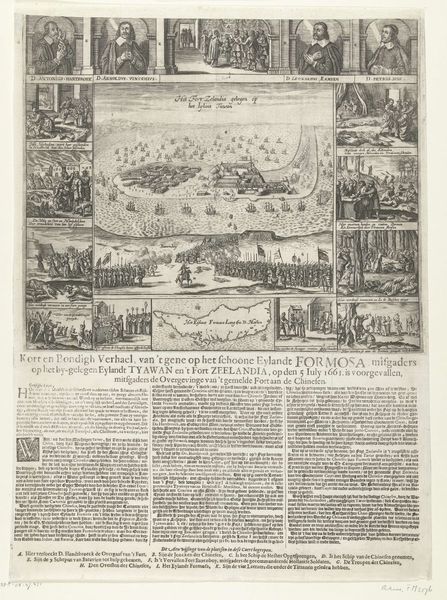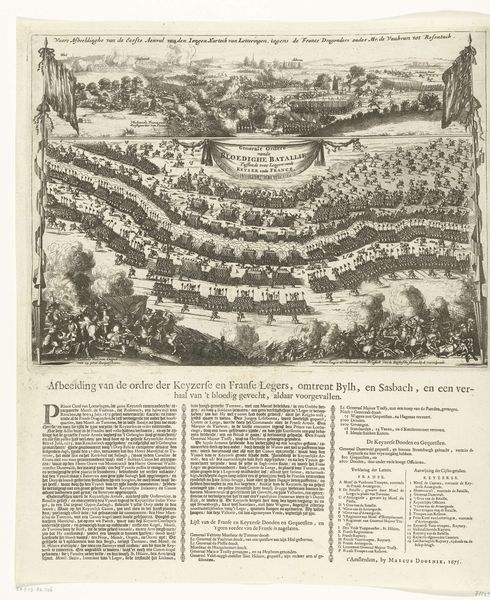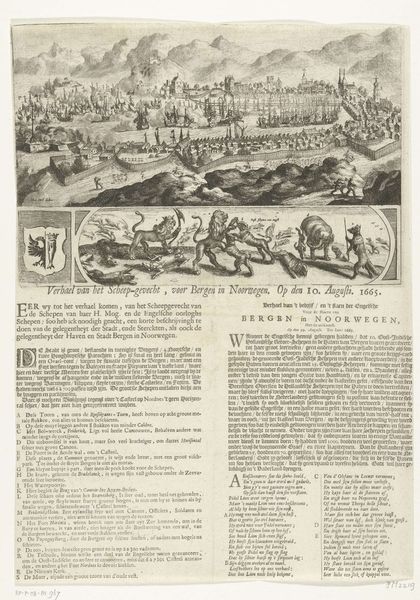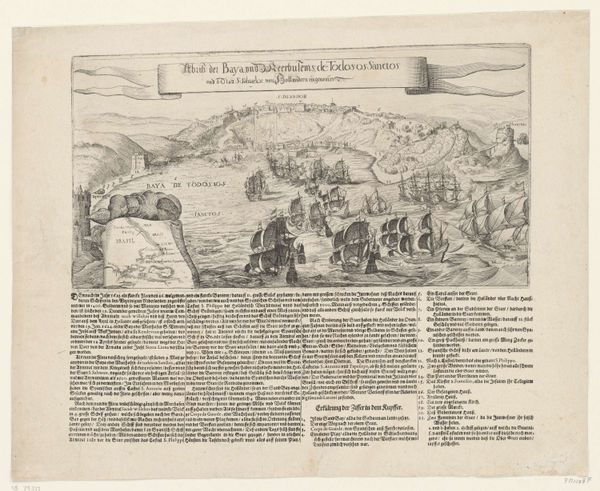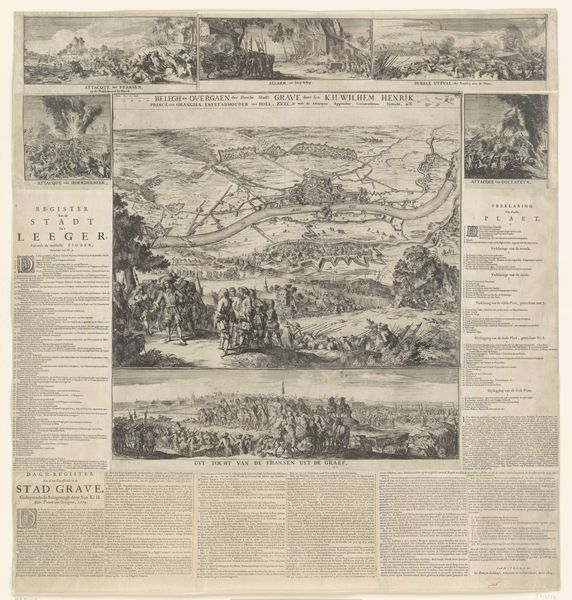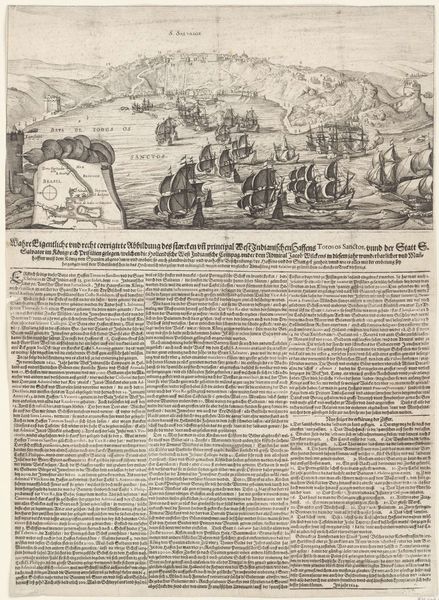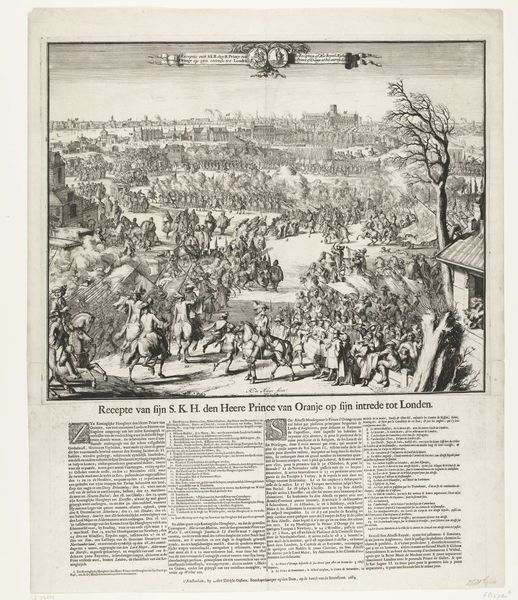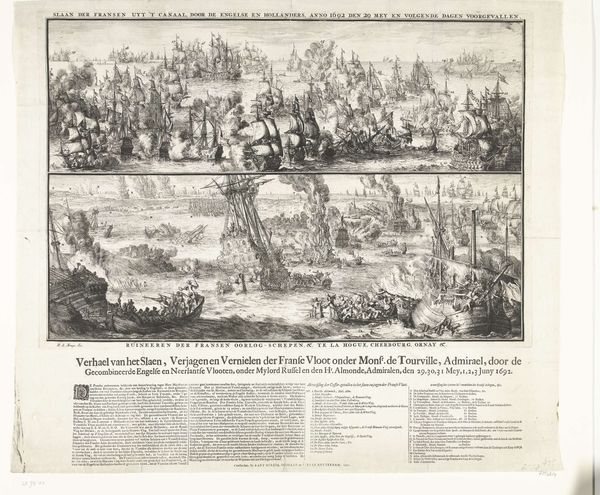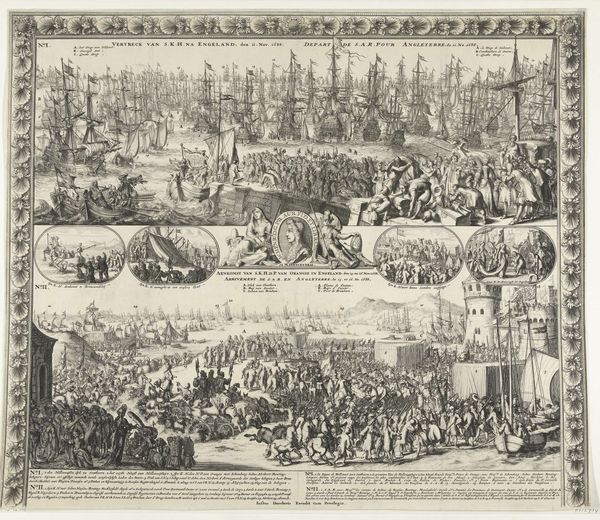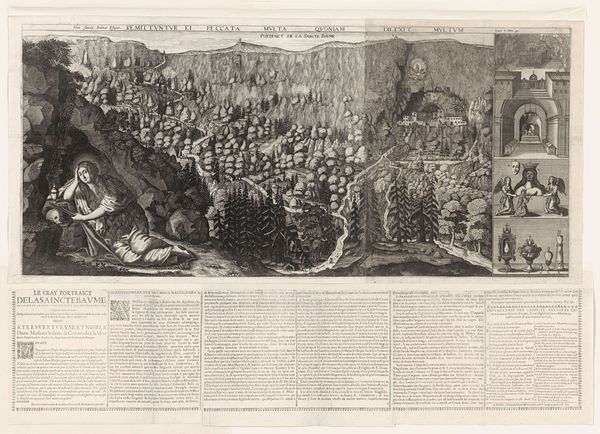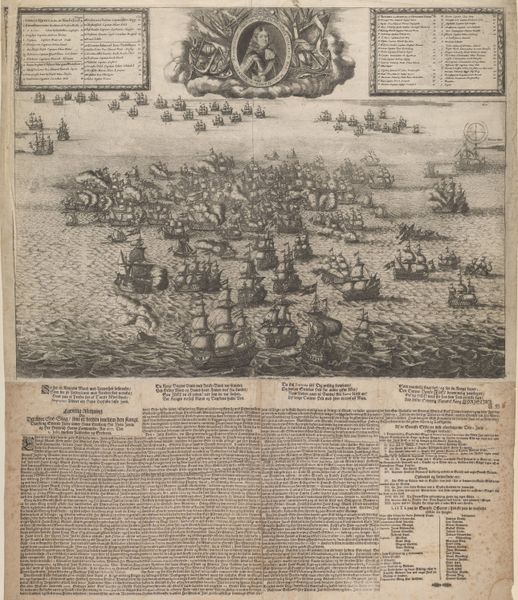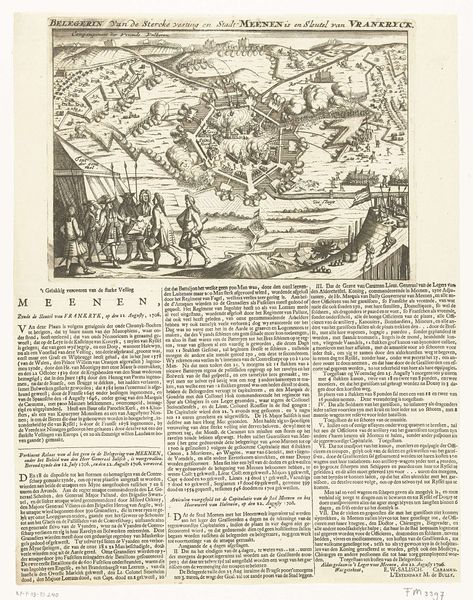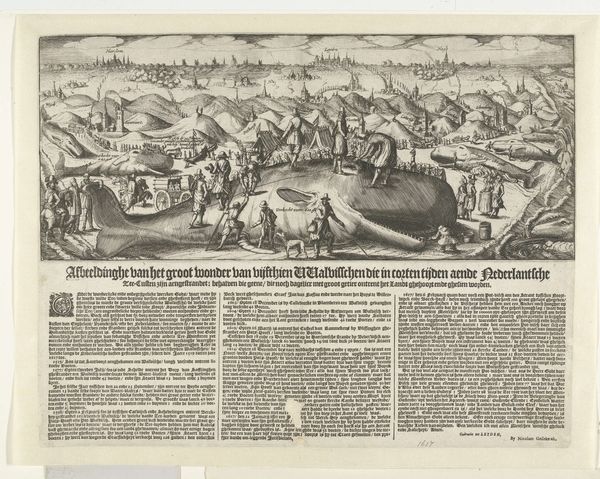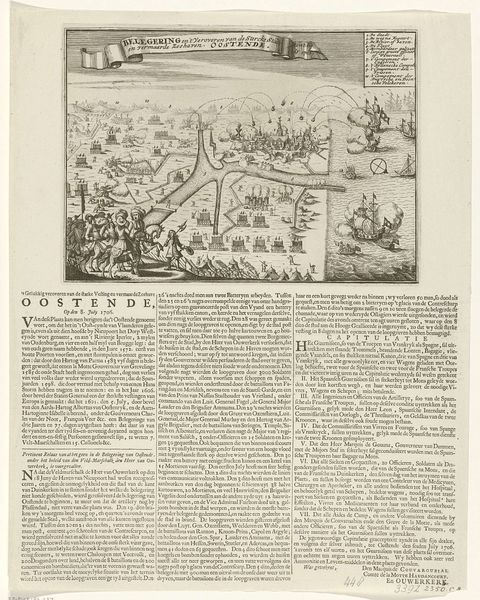
Verovering van Fort Zeelandia op Formosa door de Chinezen en de marteling en moord op de gereformeerde predikanten, 1661 1663
0:00
0:00
anonymous
Rijksmuseum
print, engraving
#
narrative-art
#
baroque
# print
#
pen illustration
#
asian-art
#
old engraving style
#
landscape
#
cityscape
#
history-painting
#
engraving
Dimensions: height 423 mm, width 325 mm
Copyright: Rijks Museum: Open Domain
This engraving, made in 1661 by an anonymous artist, depicts the Chinese conquest of Fort Zeelandia on Formosa, now Taiwan, alongside the torture and murder of reformed preachers. Note the recurring motif of martyrdom, seen in the smaller scenes surrounding the central map. Consider how such imagery of sacrifice echoes through art history, from early Christian depictions of saints to later secular portrayals of revolutionary heroes. The willingness to die for one's beliefs, visibly depicted, becomes a powerful symbol of devotion and righteousness. The act of bearing witness to suffering is an ancient, powerful trope. How does collective memory and subconscious processes affect our interpretation of such motifs? There is a raw emotional intensity that engages viewers on a deep, subconscious level. This motif, which highlights the power of symbols to transcend temporal and geographic boundaries, resurfaces in new contexts. What was once a symbol of religious devotion is now seen as secular resistance.
Comments
No comments
Be the first to comment and join the conversation on the ultimate creative platform.
